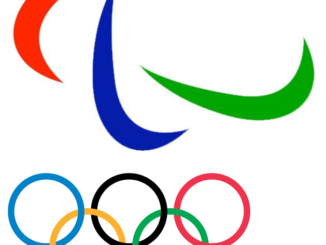
Ontario (TIP) : Google on June 29 joined Meta in announcing that it will restrict news from Canada. The decision comes as a response to the new law (Online News Act) passed by the Canadian Parliament last week. As per the new law, tech firms have to pay news publishers for their content. The legislation was formed after complaints from various media associations and news outlets in Canada. Canadian media asked for strict regulation of tech companies to avoid the years-long tussle between them and tech giants over the sharing of advertising revenue from engagement with news articles.
The Online News Act requires both Google and Meta to enter into agreements with news publishers to pay them for news content that appears on their sites if it helps them generate money.
It aims to support a struggling Canadian news sector that has seen hundreds of publications close in the last decade. Since 2008, nearly 500 newsrooms have closed across Canada, Canadian Minister Pablo Rodriguez said
In a blog post on Friday, Google said, “We have now informed the government that when the law takes effect, we unfortunately will have to remove links to Canadian news from our search, news and discover products in Canada.” It added that it will be “harder for Canadians to find news online” and “for journalists to reach their audiences.”
Google also said that the new law is “unworkable” and that the government has not given it reason to believe “structural issues with the legislation” would be resolved during its implementation.
“We don’t take this decision or its impacts lightly and believe it’s important to be transparent with Canadian publishers and our users as early as possible,” the statement added.
Google concluded its blog post by saying “We plan to participate in the regulatory process and will continue to be transparent with Canadians and publishers as we move forward. We hope that the Government will be able to outline a viable path forward.”
People in the country will, however, still be able to access news from Canadian sites by typing their respective web address directly into a browser or through apps.
Google Canada’s policy team, as quoted by the BBC, said the government had “not given us reason to believe that the regulatory process will be able to resolve structural issues with the legislation”.
While talking to CTV News, Pablo Rodriguez, the minister who was responsible for the file, said that he was surprised by Google’s move as they had had conversations with them recently.
The Heritage Minister accused Google of trying to bully Canadians, but added that “big tech isn’t bigger than Canada”. “Big tech would rather spend money changing their platforms to block news from Canadians instead of paying a small share of the billions they make in advertising dollars.”
However, legacy media and broadcasters have praised the bill, which promises to “enhance fairness” in the digital news marketplace and help bring in more money for shrinking newsrooms.
The recent move by Google poses a serious threat to the business of the media in Canada as Google controls a significant amount of web traffic. Earlier this month, Justin Trudeau, the Canadian Prime Minister, said that tech companies are using various tactics to avoid paying for news. “The fact that these internet giants would rather cut off Canadians’ access to local news than pay their fair share is a real problem,” he added. Google did not say exactly when it would begin to remove news but indicated it would happen before the law takes effect by the end of the year.
Tech giant Meta announced last Thursday that it too would block Canadian news on Facebook and Instagram. Meta is already running a test to block news for up to 5% of its Canadian users. Google ran a similar test earlier this year.
Meta and Google, who dominate online advertising, have been accused of draining cash away from traditional news organizations while using their content for free.
Canada’s measure builds on Australia‘s New Media Bargaining Code, a world first, that made Google and Meta pay for news content on their platforms.
(With inputs from AP and AFP)





Be the first to comment